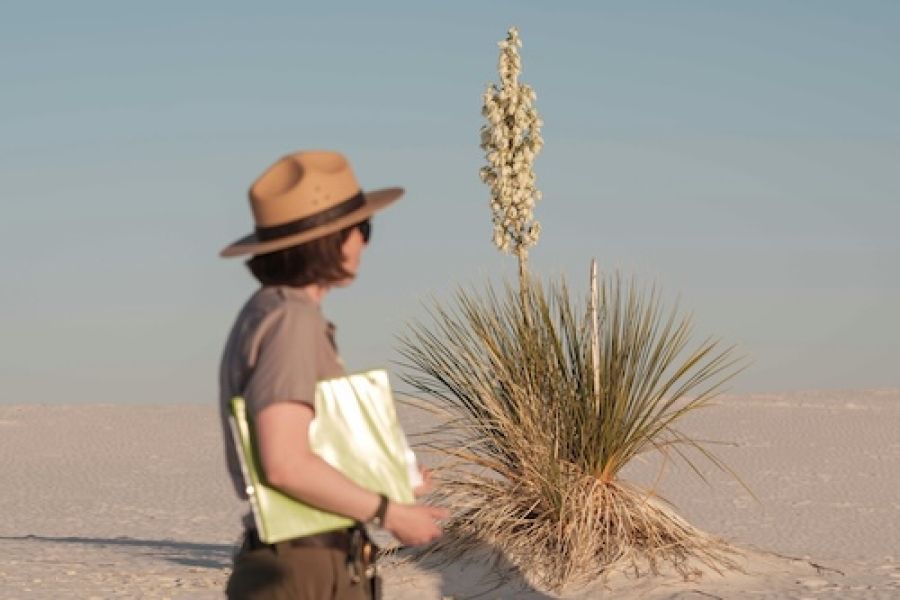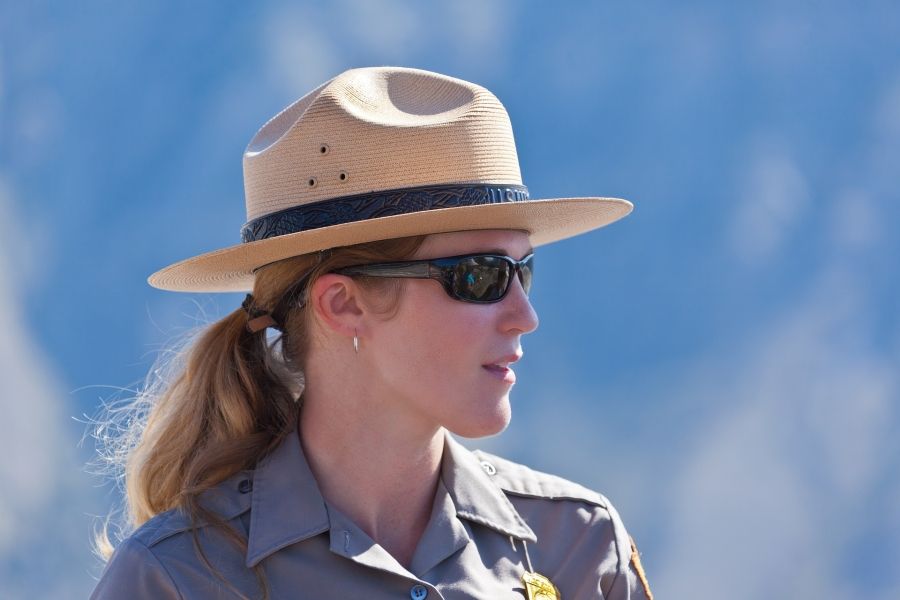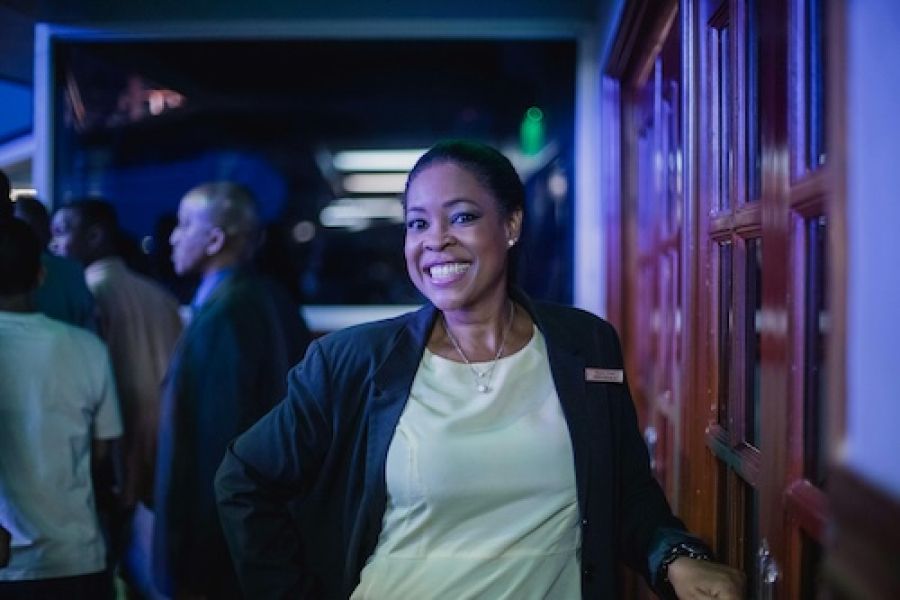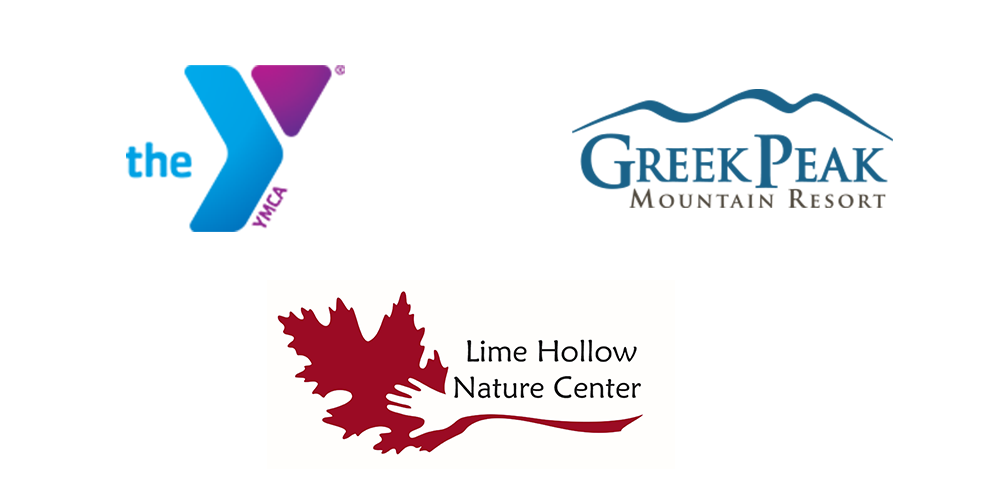Outdoor Recreation
This program is designed to give you the first two years of a Bachelor’s degree.
What You'll Learn
Coordinate outdoor experiences that emphasize safety, teamwork, and environmental stewardship.
You’ll turn your passion for the outdoors into a rewarding career leading others in nature-based recreation. With increasing regional demand for park staff, guides, and recreation managers, you’ll gain skills in outdoor leadership, environmental education, and program planning. You’ll be prepared for careers in state parks, youth programs, and adventure organizations that connect people to the natural world.
Where You’ll Go

Park Naturalists
- Provide visitor services, such as explaining regulations, answering visitor requests, needs and complaints, and providing information about the park and surrounding areas.
- Assist with operations of general facilities, such as visitor centers.
- Confer with park staff to determine subjects and schedules for park programs.
- Conduct field trips to point out scientific, historic, and natural features of parks, forests, historic sites, or other attractions.

Fish and Game Wardens
- Patrol assigned areas by car, boat, airplane, horse, or on foot to enforce game, fish, or boating laws or to manage wildlife programs, lakes, or land.
- Compile and present evidence for court actions.
- Investigate hunting accidents or reports of fish or game law violations.
- Protect and preserve native wildlife, plants, or ecosystems.

Entertainment & Recreation Manager
- Plan, organize, or lead group activities for customers, such as exercise routines, athletic events, or arts and crafts.
- Plan programs of events or schedules of activities.
- Talk to coworkers using electronic devices, such as computers and radios.
- Write budgets to plan recreational activities or programs.
- Calculate and record department expenses and revenue.
Salary information presented are estimates and can be different for each individual based on education, experience, and the specific employer. Labor market data is based on 2025 estimates derived from Lightcast (Career Coach | Lightcast)
The careers listed above are just a starting point. Our programs mix together important concepts and hands-on skills—but that doesn’t mean your future has to follow the same script. Find out more at Career Exploration & Support.

Program Requirements
To graduate [ 61-65 credits + 2.0 GPA or higher ]
| Course ID | Course Name | Credits | Minimum Grade |
|---|---|---|---|
| ENGL098 | Accelerated Writing Skills for ENGL 100 | 3 | |
| MATH017 | Skills & Support Quantitative Reasoning | 1 | |
| or MATH020 | Skills & Support for College Algebra | 2 | |
| or MATH029 | Skills & Support for Statistics | 3 |
| Course ID | Course Name | Credits | Minimum Grade |
|---|---|---|---|
| ENGL100 | Academic Writing I | 3 | C |
| or GENERIC | A student exempted from ENGL 100 must substitute a three-credit liberal arts elective. The course should be selected in consultation with the student’s advisor. | ||
| PSYC103 | Introduction to Psychology | 3 | |
| or PSYC103H | Introduction to Psychology-Honors | 3 | |
| or SOCI101 | Introduction to Sociology | 3 | |
| or SOCI101H | Introduction to Sociology-Honors | 3 | |
| RECR110 | Introduction to Recreation | 3 | |
| RECR163 | Teambldg & Group Initiative Activities | 1 | |
| SUNY GE #3 Mathematics | Mathematics | 3 - 4 | |
| SUNY GE #10 World Languages | World Languages | 3 | |
| or SUNY GE #8 US History | US History | 3 |
| Course ID | Course Name | Credits | Minimum Grade |
|---|---|---|---|
| ENGL101 | Academic Writing II | 3 | |
| or ENGL101H | Academic Writing II-Honors | 3 | |
| HLTH205 | First Aid and Safety Education | 3 | |
| or FITN216 | Lifeguard Training | 2 | |
| or RECR140 AND UNRE ELEC | Wilderness First Aid AND Unrestricted Elective | 1 + 3 | |
| or GENERIC | Students who can provide a current Lifeguard and CPR Certification OR a First Aid Certification of Responding to Emergencies or higher OR a Wilderness First Aid Certification (or higher) AND an Adult, Child, and Infant CPR Certification or higher can substitute an unrestricted elective. A waiver request form must be submitted and approved. Students taking RECR 140 will need an extra 1 credit unrestricted elective. | ||
| ENVS102 | Technology and the Environment | 3 | |
| or SUNY GE #7 The Arts | The Arts | 3 | |
| GENERIC | Outdoor Activity Elective | ||
| or FITN101 | Swimming I | 1 | |
| or FITN109 | Skiing and Snowboarding | 1 | |
| or FITN119 | Fly Fishing | 1 | |
| or FITN120 | Archery I | 1 | |
| or FITN159 | Introduction to Outdoor Experiences | 1 | |
| or RECR159 | Introduction to Outdoor Experiences | 1 | |
| RECR150 | Play Across Diverse Cultures | 3 | |
| RECR280 | Recreation Programming and Leadership | 3 |
| Course ID | Course Name | Credits | Minimum Grade |
|---|---|---|---|
| ENGL201 | Public Speaking | 3 | |
| RECR210 | Diversity and Inclusion in Recreation | 3 | |
| RECR270 | Wilderness and the American Culture | 3 | |
| RECR274 | Outdoor Recreation Pursuits | 3 | |
| UNRE ELEC | Unrestricted Elective | 3 |
| Course ID | Course Name | Credits | Minimum Grade |
|---|---|---|---|
| BIOL115 | Field Natural History | 3 | |
| RECR276 | Outdoor Recreation Field Adventure | 3 | |
| RECR285 | Recreation Field Work | 3 | |
| GENERIC | Environmental or Earth Science Elective: BIOL116, BIOL125, ENVS101, ENVS102 (if not taken above), ENVS105, ENVS107, ASTR101, GEOL101, or METR101 | ||
| or BIOL116 | Tropical Field Natural History | 4 | |
| or BIOL125 | Biology and Earth Science for Teachers | 4 | |
| or ENVS101 | Introduction to Environmental Science | 3 | |
| or ENVS102 | Technology and the Environment | 3 | |
| or ENVS105 | Environmental Ethics | 3 | |
| or ENVS107 | Economy, Society, & the Environment | 3 | |
| or ASTR101 | Introductory Astronomy | 3 | |
| or GEOL101 | Introductory Geology | 3 | |
| or METR101 | Introduction to Meteorology | 3 | |
| UNRE ELEC | Unrestricted Elective | 3 |
On this page
Certifications
Through this program, students will take a "Leave No Trace" training and become Certified Inclusivity Accessors (CIA).